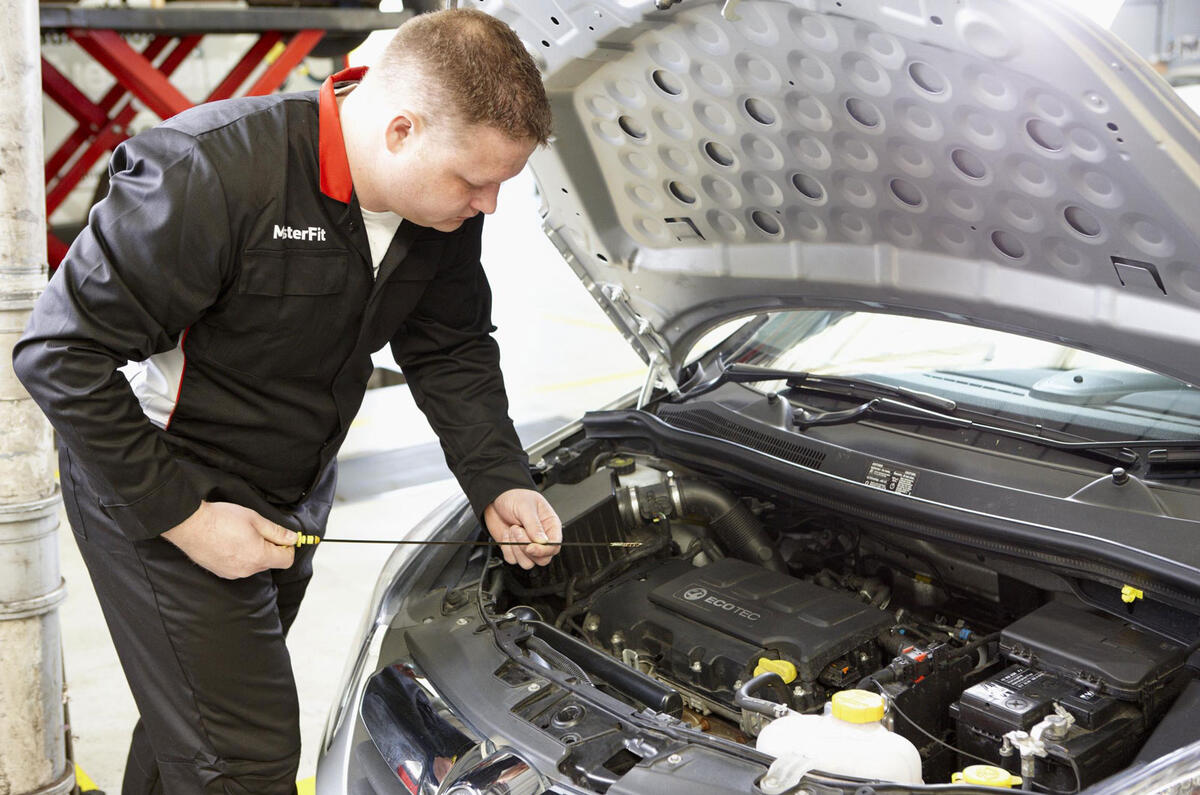UK motorists could be slapped with a 10% rise in annual car servicing costs if the UK can’t negotiate a deal with the European Union for Brexit.
A new report, called the Importance of the Aftermarket to the UK Economy 2017, shows that annual car service bills could rise by about £70 per person if the government fails to prevent the implementation of tariffs on imported goods.
The study, commissioned by the Society of Motor Manufacturers and Traders (SMMT), shows that since 80% of car parts sold in the UK aftermarket are imported, with more than three-quarters of them coming from Europe, that would equate to a national increase in costs of £2.14 billion.
The main trigger for such a rise would be a 2.5-4.5% World Trade Organization (WTO) tariff, which could be enforced if no free trade deal with the EU is made. The added costs passed on to motorists would be made up of £21 in annual servicing bills, as well as a further £49 per car resulting from quotas, subsidies, customs delays and regulatory barriers.
Along with an anticipated rise in inflation of £10, that would send average annual servicing costs up from £707 (2016) to £787 in the UK’s first post-Brexit year.
The SMMT warned of the negative impact this could have on the UK’s aftermarket car parts industry, which grew by 2.4% to contribute £21.6bn to the economy in 2016. If current trends continue, it is predicted to be worth £28bn and directly employ 400,000 people by 2022.
The cars with the shortest production runs: cut down in their prime
SMMT chief executive Mike Hawes said: “This report shows just how vital the UK automotive aftermarket is to our economy and society, supporting hundreds of thousands of jobs and keeping vehicles safe – and the country moving.
“If we don't secure a new trading relationship with the EU that is free of tariffs and customs checks, British consumers could face significant increases to their annual car repair bill due to new tariffs and other trade barriers. Government must now prioritise an interim arrangement that maintains single market and customs union membership until the right trade deal with the EU is implemented.”
Brexit could also hinder the UK’s progress in car manufacturing. Output was previously predicted to rise from 1.6 million in 2016 to two million in 2020, but is now expected to slow in growth. The SMMT said uncertainty surrounding the UK’s role in Europe and the deal it can negotiate with the EU has hindered investment.
Some car manufacturers, including Mini and Bentley, have previously warned that they could shift production to Europe if the UK leaves the EU’s single market. However, Mini recently confirmed that production of the new electric model would be handled in Britain.
Aston Martin CEO: Combustion engine ban is either disastrous or pointless




Join the debate
Add your comment
My 63 plate S60 D5 is due its
My 63 plate S60 D5 is due its 4th service at the end of the month, the 4th service is a big one, my local Volvo dealer have quoted me £371 including VAT, this also comes with a years continued European Volvo breakdown cover valued at £99, so as others have said, what are they getting serviced?
Utter hogwash
Average servicing costs £707? Where, central London? Is it not a bit late for the scaremongering?, nothing we can do about it now. I'm sure it will all work out in the end!
Not moaning again.
This is from a SMMT press release in 2001; they were very keen on UK joining the Euro. A move now seen as causing huge damage to UK had it gone ahead. A strong £ was also a big problem, so at least that should be helping at the moment, but no mention of that in above article.
With no clear government position on the UK’s entry to the Euro, manufacturers battle against high costs and an uncertain future. Sterling remains strong and component suppliers in particular struggle to be competitive.
Eighty per cent of vehicles exported from the UK are destined for Europe and fewer components are being sourced from British suppliers, threatening jobs in this sector. A stable and competitive exchange rate must be a government priority if companies are to continue to invest in and support manufacturing.
SMMT Chief Executive Christopher Macgowan said, ‘The motor industry is responsible for some 800,000 jobs and generates £46 bn for the UK economy. It simply doesn’t make sense for the Chancellor to continue to ride on waves of uncertainty coupled with high exchange rates while loading manufacturers with new taxes.
As we wait for a decision on the single currency, companies are sinking under a raft of tax and currency pressures.’